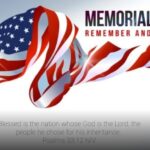
Desmond Doss, was a United States Army medic who served during World War II. Desmond Doss is famous for his actions during the Battle of Okinawa, where he saved the lives of 75 men without carrying a weapon.
Early Life: Desmond Thomas Doss was born on February 7, 1919, in Lynchburg, Virginia. He was a devout Seventh-day Adventist, which influenced his pacifist beliefs.
Conscientious Objector: Doss enlisted in the Army as a conscientious objector, meaning he refused to carry or use a weapon. Instead, he served as a medic, believing it was his duty to save lives rather than take them.
Heroic Actions:
Battle of Okinawa: During the fierce fighting at the Maeda Escarpment (often referred to as Hacksaw Ridge) on Okinawa in May 1945, Doss’s unit faced intense enemy fire. Despite the danger, Doss repeatedly ran into the battlefield to treat wounded soldiers.
Lowering Men to Safety: Over the course of several days, Doss single-handedly lowered injured soldiers down the cliff to safety using a makeshift rope sling. He risked his life continuously, even after being wounded himself.
Recognition:
Medal of Honor: For his extraordinary bravery and selflessness, Desmond Doss was awarded the Medal of Honor by President Harry S. Truman on October 12, 1945. He was the first conscientious objector to receive the United States’ highest military honor.
Legacy: Desmond Doss’s story was later depicted in the 2016 film “Hacksaw Ridge,” directed by Mel Gibson, which brought his incredible heroism to a wider audience.
Desmond Doss remains a symbol of courage, faith, and dedication to saving lives, embodying the highest values of selflessness and compassion.
John 15:13 Breakdown:
“Greater love has no one than this: to lay down one’s life for one’s friends.”
Greater Love
Scripture Reference:
1 John 3:16: “This is how we know what love is: Jesus Christ laid down his life for us. And we ought to lay down our lives for our brothers and sisters.”
Romans 5:8: “But God demonstrates his own love for us in this: While we were still sinners, Christ died for us.”
Key Takeaway: The greatest expression of love is self-sacrifice. Jesus sets the ultimate example by laying down His life for humanity, demonstrating the highest form of love.
Lay Down One’s Life
Scripture Reference:
John 10:11: “I am the good shepherd. The good shepherd lays down his life for the sheep.”
Philippians 2:7-8: “Rather, he made himself nothing by taking the very nature of a servant, being made in human likeness. And being found in appearance as a man, he humbled himself by becoming obedient to death—even death on a cross!”
Key Takeaway: Jesus willingly laid down His life, not under compulsion, but out of love and obedience. This voluntary act of sacrifice is a model for believers to follow.
For One’s Friends
Scripture Reference:
John 15:14-15: “You are my friends if you do what I command. I no longer call you servants, because a servant does not know his master’s business. Instead, I have called you friends, for everything that I learned from my Father I have made known to you.”
Romans 5:10: “For if, while we were God’s enemies, we were reconciled to him through the death of his Son, how much more, having been reconciled, shall we be saved through his life!”
Key Takeaway: Jesus calls His disciples friends, indicating a close, personal relationship. His sacrifice for His friends underscores the depth of His love and commitment.
Key Takeaways:
Sacrificial Love:
Application: Believers are called to love others selflessly, even to the point of personal sacrifice. This love mirrors Jesus’ sacrificial love and sets a high standard for Christian conduct.
Model of Jesus:
Application: Jesus’ life and death serve as the ultimate example of how to love others. Christians are encouraged to follow His example by serving others and prioritizing their needs.
Friendship with Jesus:
Application: The relationship between Jesus and His followers is based on love and obedience. Believers are not mere servants but friends of Jesus, sharing in His mission and love.
Unconditional Love:
Application: Jesus’ love extends to all, even to those who were once His enemies. Christians are called to extend love and forgiveness universally, reflecting the unconditional love of Christ.
Community and Unity:
Application: The church is called to be a community of believers who love one another deeply. This unity and mutual support are a testament to the love of Christ at work within the community.
By reflecting on these cross-references and takeaways, believers can gain a deeper understanding of John 15:13 and its profound implications for their faith and daily living.
